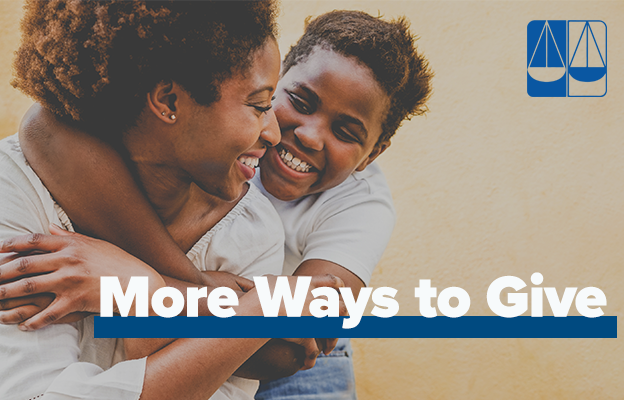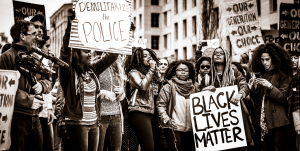Special Litigation and Advocacy

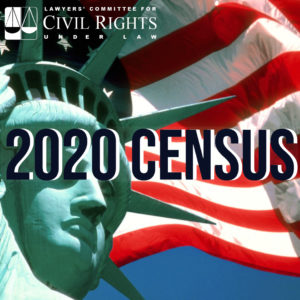 The Special Litigation and Advocacy Project works on some of the most cutting-edge civil rights issues we face in our nation today. The Project is driven by a recognition that modern racial justice issues are rapidly evolving and becoming increasingly complex. The Special Litigation and Advocacy Project helps ensure that the Lawyers’ Committee for Civil Rights Under Law is responsive to pressing racial justice issues that are not addressed by the other Projects in the organization.
The Special Litigation and Advocacy Project works on some of the most cutting-edge civil rights issues we face in our nation today. The Project is driven by a recognition that modern racial justice issues are rapidly evolving and becoming increasingly complex. The Special Litigation and Advocacy Project helps ensure that the Lawyers’ Committee for Civil Rights Under Law is responsive to pressing racial justice issues that are not addressed by the other Projects in the organization.
At the Project, we firmly believe that our litigation and advocacy should be anchored by community engagement and empowerment, and we carry out our work in collaboration with grass roots organizations, community leaders, and other racial justice organizations. We strive to ensure that our engagement takes a holistic approach to serve communities, and are inclusive to intersectional identities that may not always be recognized in the civil rights space.
Core areas that currently anchor this Project include defending the constitutional rights and dignity of Black immigrants, working to ensure a fair, accurate, and inclusive 2020 Census count, tackling environmental racism, challenging unfair city ordinances that disproportionately affect people of color, and safeguarding the First Amendment rights of peaceful protesters.
For inquiries about fellowships, internships, and law school clinical projects for the Special Litigation and Advocacy Project, please contact Maryum Jordan at mjordan@lawyerscommittee.org.
Litigation
2020 Census
On March 26, 2018, Secretary of Commerce Wilbur Ross made the troubling announcement that a citizenship question would be added to the 2020 Census by the United States Department of Commerce and the Census Bureau.
The addition of the citizenship question was deeply concerning. No such question has been asked for decades, and the citizenship question was added so late in the planning process that the effectiveness of the question had not been accurately tested. As a result, the inclusion of the citizenship question could drastically and negatively alter response rates.
On April 17, 2018, the Lawyers’ Committee, along with co-counsel Manatt, Phelps & Phillips, the Lawyers’ Committee for Civil Rights Under Law filed a lawsuit that challenged Secretary Ross’ decision to add the citizenship question. The lawsuit is on behalf of the City of San Jose and the Black Alliance for Just Immigration.
The lawsuit sets out to show that Secretary Ross chose to add the citizenship question without justification and then coerced the Department of Justice to make a formal request for its addition to the 2020 Census — all according to Census Bureau documents. Ross made the decision with the full knowledge that adding a citizenship question would lessen the accuracy of the data and violate specific legal requirements, both in terms of its constitutionality and the necessity that no new topics for the 2020 Census were to be added beyond March 2017.
The lawsuit also claims that the addition of a citizenship question will depress participation rates among immigrant communities and communities of color, resulting in a significant undercount that will consequently result in insignificant funding and resources for those communities. The addition of a citizenship question would also be in violation of the Administrative Procedure Act (“APA”), and unconstitutional under the Enumeration Clause and Fourteenth Amendment of the U.S. Constitution.
On March 6, 2019, Judge Richard Seeborg agreed with the plaintiffs and permanently enjoined the implementation of the citizenship question in the 2020 Census. The Court found that Secretary Ross’s decision was arbitrary and capricious under the Administrative Procedure Act and also violated the Enumeration Clause of the United States Constitution.
A concurrent lawsuit filed by the New York Attorney General regarding the 2020 Census citizenship question was heard by the Supreme Court on April 24, 2019. That case, though topically similar, is about a very different issue: whether or not Secretary Ross can be deposed regarding the addition of the citizenship question.
Relevant Documents:
Media:
- Press Releases
News Clips
-
- (NPR)- Hurdles Remain As The Final Countdown Begins For The 2020 Census, https://www.npr.org/2019/01/10/677745758/hurdles-remain-as-the-final-countdown-begins-for-the-2020-census
- https://www.usatoday.com/story/news/politics/2019/03/06/2020-census-citizenship-question-struck-down-second-federal-judge-trump/3082281002/
- https://www.huffpost.com/entry/census-citizenship-question-blocked_n_5c8020cfe4b0e62f69e95de8
- https://www.npr.org/2019/03/06/698886346/second-judge-blocks-trump-administrations-census-citizenship-question-plans
Deferred Enforced Departure
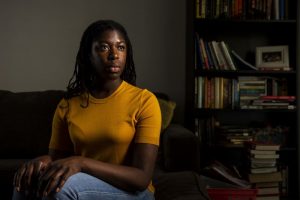 On March 8, 2019, the Lawyers’ Committee in partnership with Lawyers for Civil Rights (Boston Lawyers’ Committee affiliate) and Dechert LLP filed a lawsuit on behalf African Communities Together, UndocuBlack, and individual plaintiffs against President Donald J. Trump and his administration. The lawsuit alleged that President Trump’s abrupt decision to terminate Deferred Enforced Departure (DED) was motivated by race, ethnicity, and national origin.
On March 8, 2019, the Lawyers’ Committee in partnership with Lawyers for Civil Rights (Boston Lawyers’ Committee affiliate) and Dechert LLP filed a lawsuit on behalf African Communities Together, UndocuBlack, and individual plaintiffs against President Donald J. Trump and his administration. The lawsuit alleged that President Trump’s abrupt decision to terminate Deferred Enforced Departure (DED) was motivated by race, ethnicity, and national origin.
DED is a critical humanitarian relief program that was extended to Liberian immigrants living in the United States because a violent armed conflict, fragile economic conditions and political instability in Liberia. The program was first extended to Liberian immigrants in 1999 and has been consistently renewed ever since. Over the last 20 years, thousands of Liberian immigrants have created new lives in the United States. They’ve secured employment, started families, and pursued education opportunities.
In January 2018, President Trump made a series of racist statements about immigrants from Central America, the Caribbean and Africa; calling these places “shithole countries” and saying that immigrants from Africa would “never go back to their huts” after visiting the United States. Soon after, President Trump announced the termination of the DED program for Liberians in addition to Temporary Protected Status for immigrants from Haiti, Nicaragua, El Salvador and Sudan.
Our lawsuit alleges that the President Trump’s decision to terminate the DED program was motivated by his racial animus toward immigrants of color in violation of the Due Process Clause and the Equal Protection Clause of the U.S. Constitution. The lawsuit sought an injunction forbidding the Department of Homeland Security from implementing President Trump’s termination of the DED program. It was filed in the United States District Court for the District of Massachusetts.
On March 28, 2019, a few hours before oral argument for the lawsuit, the White House released a Presidential Memorandum that announced the extension of DED for Liberians through March 31, 2020. The extension of the program is critical because it gives Liberian DED holders a full calendar year to pursue alternative pathways to permanent residency.
Relevant Documents:
- Complaint
- Preliminary Injunction Motion
- DED Memo from Trump Announcing Extension
- Amici Curiae Brief
Media:
- Press Releases
- News Clips
- (Washington Post) Trump Administration Sued Over Liberian Immigration Program
- (Think Progress) A woman who’s lived legally in the U.S. for decades may be deported in 25 days. Here’s why.
- (The New York Times) Trump Administration Is Sued Over Liberian Immigrant Program
- (Bloomberg Law) Trump Again Accused of Racism in Ending Liberians’ Protections
- (Daily Kos) ‘Intentional discrimination’: Liberian immigrants sue Trump admin over termination of protections
- (LA Times) Trump’s move to end humanitarian program exposes Liberian UCLA student to deportation
Black Bike Week
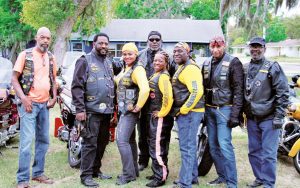 Black Bike Week is an annual motorcycle festival that takes place in the Grand Strand Area of South Carolina, including the city of Myrtle Beach. Starting in 1980, in historic Atlantic Beach, South Carolina, the festival is the largest gathering of African American motorcyclists in the country. The event takes place over Memorial Day Weekend, and is the only time of year when African Americans make up the majority of visitors to the area.
Black Bike Week is an annual motorcycle festival that takes place in the Grand Strand Area of South Carolina, including the city of Myrtle Beach. Starting in 1980, in historic Atlantic Beach, South Carolina, the festival is the largest gathering of African American motorcyclists in the country. The event takes place over Memorial Day Weekend, and is the only time of year when African Americans make up the majority of visitors to the area.
The City of Myrtle Beach has mounted concerted efforts to limit African American attendance at Bike Week for the last twenty years with the aim of ending the weekend all together.
On February 28, 2018, the Lawyers’ Committee for Civil Rights Under Law, along with co-counsel Relman, Dane & Colfax, PLLC, Law Office of Peter Wilborn, and the NAACP Office of the General Counsel, filed a lawsuit against the City of Myrtle Beach and the City of Myrtle Beach Police Department. The complaint alleges that there are stark differences in the treatment of African-American bikers during Black Bike Week compared to the treatment of majority-White bikers during Harley Week. Yet the weekends are very similar. Both events attract a large number of tourists to Myrtle Beach and occur in May, with Black Bike Week being held over the Memorial Day Weekend and Harley Week taking place the week before.
The response from the City of Myrtle Beach to the weekends is markedly different. During Black Bike Week the City restricts traffic to one direction on Ocean Boulevard (the main thoroughfare) and imposes a 23-mile traffic loop with just one exit. The 23-mile traffic loop can take up to six hours to navigate. The City imposes no alternative traffic plan during Harley Week. Additionally, the City deploys 500+ more police officers during Black Bike Week than Harley Week.
The plaintiffs originally sought a preliminary injunction to prevent Myrtle Beach’s traffic plan for the 2018 Black Bike Week from being implemented but the Court decided that a preliminary injunction was unnecessary at the time. On February 22, 2019, the plaintiffs renewed their motion for a preliminary injunction.
Relevant Documents:
- Amended Complaint
- Preliminary Injunction Motion
- Renewed Motion for a Preliminary Injunction
Media:
- Press Releases
- News Clips
- https://www.wbtw.com/news/grand-strand/more-plaintiffs-added-to-naacp-black-bike-week-discrimination-lawsuit-against-myrtle-beach-mbpd/1782620133
- https://www.theroot.com/bikingwhileblack-naacp-and-black-motorcyclists-sue-my-1826329512
- https://www.postandcourier.com/news/naacp-sues-myrtle-beach-city-government-and-police-over-handling/article_0ea18c1a-1bd1-11e8-9c02-ff12bdde7aac.html
Know Your Rights
The Know Your Rights (KYR) initiative is a formalized partnership with the National Bar Association.
KYR seeks to mobilize members of the private bar to serve as legal observers and provide individual-level representation for protesters who are detained or arrested during mass demonstrations against police misconduct. KYR brochures have been created for Atlanta, Baton Rouge, and Washington, D.C. We believe that citizens should be free to exercise their first amendment rights and provided with the support needed to engage in protests and demonstrations.
KYR Brochures
Advocacy
In 2017, the Special Litigation and Advocacy Project launched the Protester Protection Program which aims to protect the First Amendment rights of peaceful demonstrators. Through the program, the Special Litigation and Advocacy Project trains volunteer attorneys to serve as legal observers (monitor of law enforcement activity) during large scale protests. Since its launch, the Lawyer’s Committee has trained hundreds of attorneys, activists, students, and legal workers in Baton Rouge, Louisiana, Charlotte, North Carolina, Washington D.C., and Jackson, Mississippi.
With the support of its volunteers, the Lawyers’ Committee has created “Know Your Rights” pamphlets on laws applicable to protesters in Washington D.C, Atlanta, Baton Rouge, and Philadelphia. The Lawyers’ Committee has also mobilized legal observers and jail support volunteers for various demonstrations including:
- The 2018 March for Black Women in Washington D.C.
- The Families Belong Together Rally in Washington D.C.
- Counter-protests to Unite the Right 2 in Washington D.C.
- Protests in the aftermath of the murder of Alton Sterling in Baton Rouge, Louisiana
- Protests in the aftermath of the murder of Keith Lamont Scott in Charlotte, North Carolina
Hurricane Harvey Disaster Relief Manual

